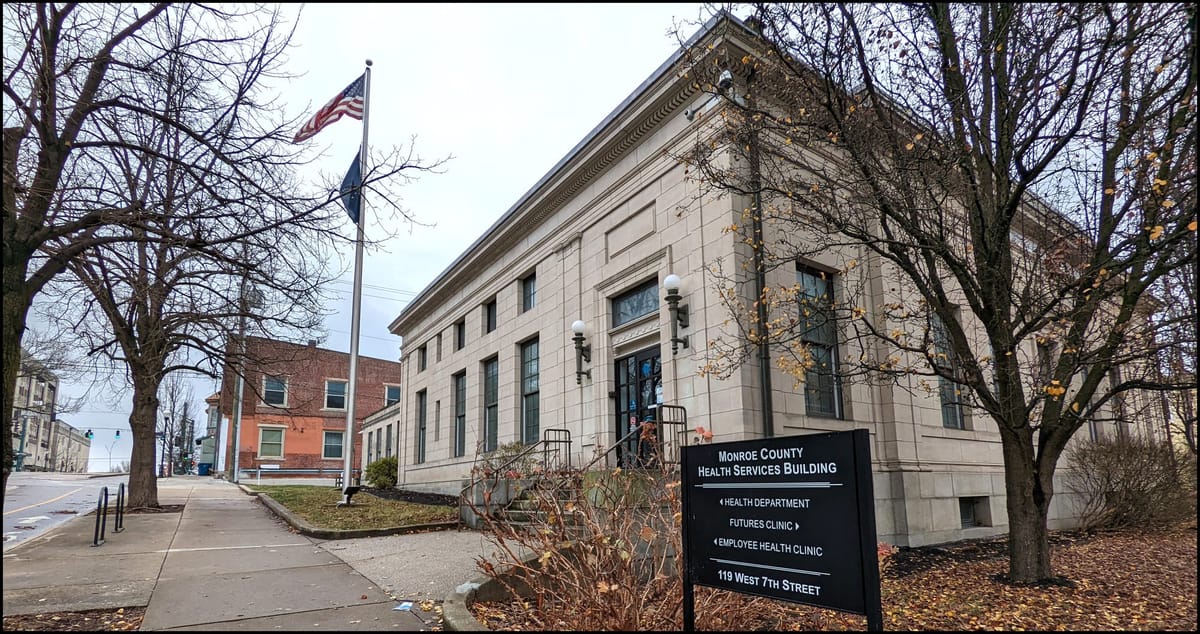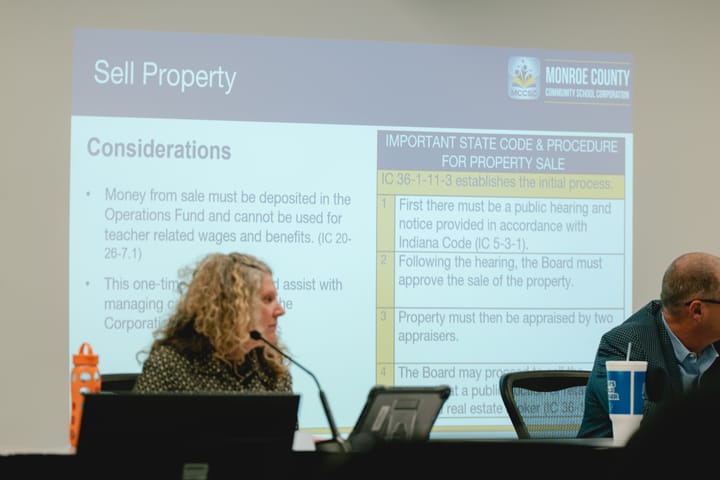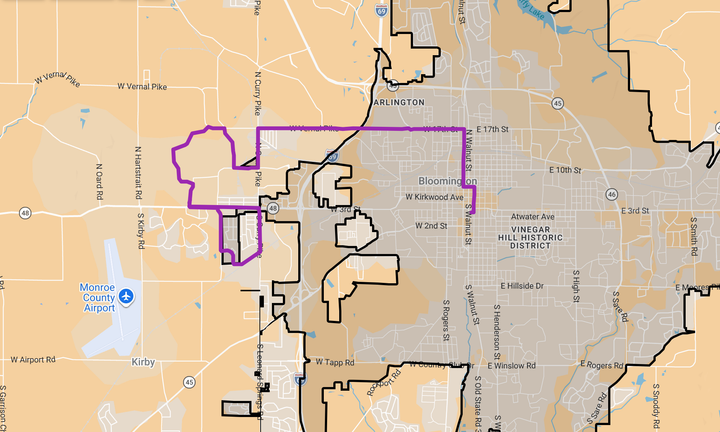Following criticism, Monroe County health board mulls new public comment policy
Following critical public commentary at recent meetings, the Monroe County Board of Health is now considering a new policy to govern public comment during its meetings. A policy draft will be reviewed by board members for the board's June 26 meeting.


Following critical public commentary at recent meetings, the Monroe County Board of Health is now considering a new policy to govern public comment during its meetings.
Health board chair Dawne (Aurora) DiOrio said in an email to The B Square that a policy draft will be reviewed by board members before the June 26 meeting. She hopes that a "final draft" ready for public scrutiny will be ready by the end of that meeting. DiOrio estimated that in August, the board would vote on a final version of a policy, after potential revisions are made following public input.
The first discussion of public comment by the health board came at the May 15 meeting. "Discussion of Public Comment" appeared on the agenda as an item. This was a response to public comments at the April 17 meeting about the closing of the Futures Family Planning Clinic.
But during the May 15 health board meeting, no chance for public comment was offered. That led to frustration for some people who were attending the meeting remotely, and had their virtual hands raised on the Microsoft Teams meeting platform indicating they wanted to be recognized to speak.
Public commenters on April 17 expressed concern and frustration and sought accountability concerning the clinic's closure. Comments included criticisms of health department leadership, specifically health administrator Lori Kelley.
Addressing the health board on April 17, former Futures clinical assistant Debbie Deckard said, "[Employees] have left because [of] things going on in this health office." "And you know that, Lori. Dr. [Stephen] Pritchard, you need to be accountable, too. ... You know what's going on. And the board needs to be accountable."
Chris Husted, former clinic manager, said, "One of the major reasons that I left is, frankly, due to Lori's leadership, or lack thereof."
Reacting to these kinds of comments at the board's May meeting, DiOrio said, "I don't think recently [public comment] has been productive or served public interest." At a recent health department open house, she realized that the "strong negativity was having an effect on our employees." She continued, "And we don't want that, you know? These people are happy at their jobs, and they felt — I'm doing air quotes — 'abused' by the continued tone of the commenters. ... I mean, Lori's one of our employees, too."
On May 15, board members discussed ideas for managing public comment in the future. They considered the possibilities of publicizing the board's email address, limiting comments to email, allowing spoken comments by invitation, or requiring that comments be connected to specific agenda items.
Indiana's Open Door Law (IC 5-14-1.5) gives individuals the right to attend and observe all public proceedings, but does not generally require a chance for public comments at meetings. From Section 3 of the law: "A governing body may adopt reasonable rules to govern the taking of oral public comment at a meeting."
One local example of public comment governance is the Monroe County Community School Corporation (MCCSC) board's policy about public participation at board meetings. It states that commenters may not "address or question Board members individually," and that the board president may interrupt or terminate any statement deemed "too lengthy, personally directed, abusive, obscene, or irrelevant." The school board has strictly enforced this part of the policy in the past, interrupting comments that mention individual MCCSC employees by title or name. That goes for any personally directed comments, including criticism and praise.
During the health board's discussion, board members seemed to agree that public comment provided additional perspectives for the board to consider. Lisa Hanner-Robinson said, "I think having a venue where the public can come and make a comment ... I think is important, even though we may not like what's said."
Kay Leach said she agreed with Hanner-Robinson. She added that there have been times when public comment has informed the board of something it wasn't previously aware of.
Providing perspective on the issue of public comment, Monroe County Council president Jennifer Crossley said at the council's May 27 meeting that "the good, the bad, [and] the ugly" of public comment should be embraced. "That is what democracy looks like," she said. Crossley confirmed to The B Square that she was talking about the health board's public comment policy discussion.
The next health board meeting is set for Thursday, June 26. The county’s calendar of boards and commission meetings is available online. Agendas are generally available under links for specific meetings.




Comments ()